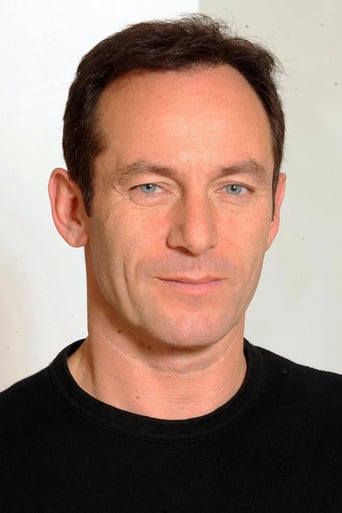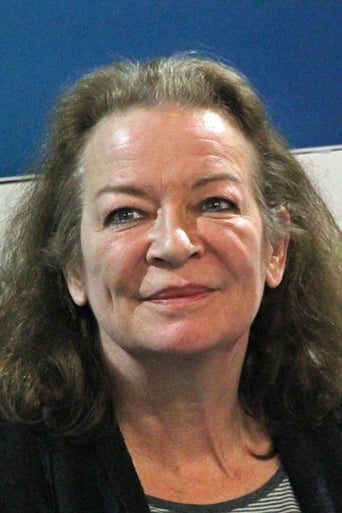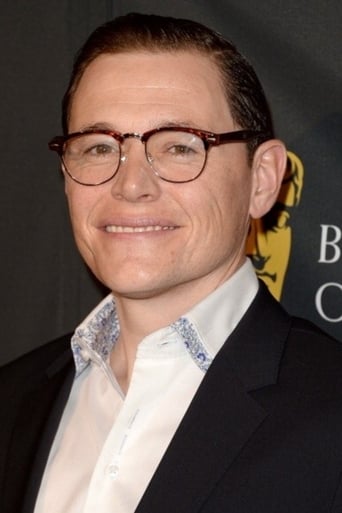Cathardincu
Surprisingly incoherent and boring
Smartorhypo
Highly Overrated But Still Good
Platicsco
Good story, Not enough for a whole film
Hayden Kane
There is, somehow, an interesting story here, as well as some good acting. There are also some good scenes
l_rawjalaurence
The story of Harry H. Corbett's (Jason Isaacs') decline in fortune, from an aspiring star of Joan Littlewood's Theatre Workshop to a pathetic wreck in the mid-Eighties, reduced to playing pantomime and embarking on a pointless tour of Australia in a stage version of Steptoe and Son, is a familiar one. Although brilliant in his portrayal of Harold Steptoe, he became so typecast that no one could see him performing anything else. Wilfrid Brambell (Phil Davis) experienced no such agonies - as a character-actor, he was glad of the regular work. Nonetheless he had his own personal problems - as a closet homosexual at a time when it was illegal in Britain, he was reduced to making brief assignations in public rest-rooms. Apparently Brian Fillis' drama upset the Corbett family due to its portrayal of the Brambell/ Corbett professional relationship; as a result, the drama is now prefaced with a warning that some of the scenes are fictionalized versions of the truth. One wonders why there was so much fuss: the relationship between the two actors is portrayed as cordial on set, while off-set they chose to lead totally separate lives. Once the series finished in 1974 (on television, at least) they said goodbye to one another quite civilly. The drama suggests that Corbett was in a sense a victim of his own desire for fame and fortune - goaded by Tom Sloan (Roger Allam), the BBC's long-serving head of comedy - he agreed to make series after series, even though he protests to his wife Sheila Steafel (Zoe Tapper) that he will quit as soon as humanly possible. Isaacs and Davis give convincing characterizations; they capture the mannerisms of the two actors quite uncannily.
trevorwomble
Steptoe & Son (remade in the U.S as 'Sanford & Son') was one of the seminal British TV sitcoms of the 1960s, and owes a lot to the 'Angry young man' style of theatre and film that came the decade before. Out of that theatre came a slew of gifted actors like Albert Finney, Tom Courtenay, Richard Harris, Richard Burton, Laurence Harvey and the underrated Harry H Corbett.That Corbett's career never reached the heights of the others is the subject of this solid and extremely well acted drama about how he found such success in the BBC sitcom that he was forever stereotyped and unable to break the mould or be accepted as the accomplished stage actor he was. 'Curse' is indeed apt to this predicament, the shows immediate success destroyed any chance he had of regaining his serious career. As he so poignantly states in one scene (and i admit i'm paraphrasing here) "I will forever be known as a rag and bone man".Jason Isaacs does a splendid job as Corbett, his optimism slowly wearing away as his TV star shines. Trapped by immediate success he rues the day he agreed to do the show. At first the resemblance between the younger Corbett and Isaacs is superficial but once the show reappeared after a 5 year break in the 1970s, the resemblance between the two is striking, and the mannerisms are uncanny too (even the voice). Praise too for Phil Davis for his excellent portrayal of the sad and lonely Brambell, a man who also rues the day he did the show, but for very different reasons.I cannot fault the two leads and all the actors are marvellous as is the period detail. My grumble is that this could have been a much better drama if the script had been longer and taken the film to a more logical conclusion (Corbetts death in 1982). It is well known that Corbett or Brambell didn't really get on (amazingly Brambell was only 13 years older than Corbett)so a deeper insight into that conflict would have been good. It would also have made more sense to show the ill fated tour of Australia and their post-Steptoe careers, and oddly no mention is made of the two Steptoe feature films they did in the early 1970s.However this drama shows that Isaacs is a much better actor than his Hollywood career has so far shown. Phil Davis is also still one of the best supporting actors in Britain.
romeros-zombie
Jason Issacs was on top form as Corbett and Phil Davis was absolutely stunning as the tragic Wilfred Brambell all in all one of the best pieces of drama to grace the BBC in a hell of long time. The whole affair although telling a sometimes very dark tale was handled with a great deal of affection and care. Having loved Steptoe & Son from an early age I will certainly view it in a different light knowing the heartache it appears to have caused the Brambell and Corbett. Costumes and sets were spot on and the piece really gave you a feel for how writers and performers of that era behaved towards one another. Much like the actual show I regret this show having to end as it left me wanting more from two of the finest most underrated actors in the UK.
GD Cugham
"I am not what I am..." seems to have been the personal and professional ethos of both Wilfrid Brambell and Harry H. Corbett. In the latter's case this was a constant battle between artistic aspirations and typecasting, in the former's an approach to acting as a trade - and a battle with his attraction to trade of the rough variety.In his autobiography, Brambell perceived acting as " the lesser of the arts" as it was "interpretive". Career-wise he was at stalemate, knew he was a character actor and was comfortable in the niche. Corbett, retaining a sense of the Chinese-whispered "Method" technique fashionable in the early sixties, was a talented mimic and character actor, but perceived himself more as a leading man. He could have joined the ranks of Burton, Finney and Harris had 'Steptoe' not held firm grasp of his ambition.The BBC is embodied, in one producer character, as a gently patrician factory boss. The writers, Galton and Simpson, are expected to churn out scripts as a mill would cotton, and, in this nationalised industry, the actors are the workers on the shop floor.Corbett's curbed aspiration is reinforced at key points throughout the film. Initially it is Finney who wins a job over him - in the end Corbett is second choice to Bernard Bresslaw. This is telling. In fighting the comic acting he so deftly made a talent, Corbett suppressed the life of his career out with Steptoe into any other sphere. Bresslaw, an equally skilled classical actor with a popular comedy persona, embraced these gifts and did well in both milieu.The more Corbett fought for a credible acting reputation the more manacled he became to Harold Steptoe. Not all the fault of the typecasting as the film pointed out. Corbett was possessed of a near child-like rage and arrogance toward his career and women. A key scene shows his initial joy at doorstepping paparazzi on the day after the first series of 'Steptoe & Son' began. He thought every glory would come knocking and did little of the footwork his contemporaries did. Like all "curses" this was self-perpetuated misfortune, self-fulfilling prophecy.




